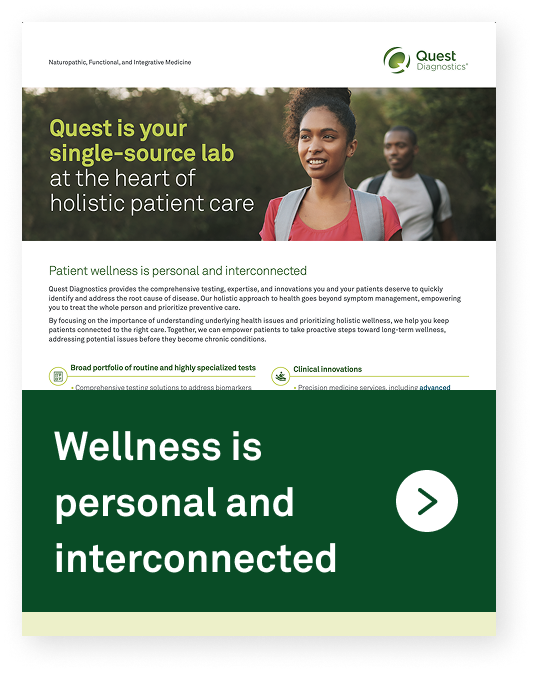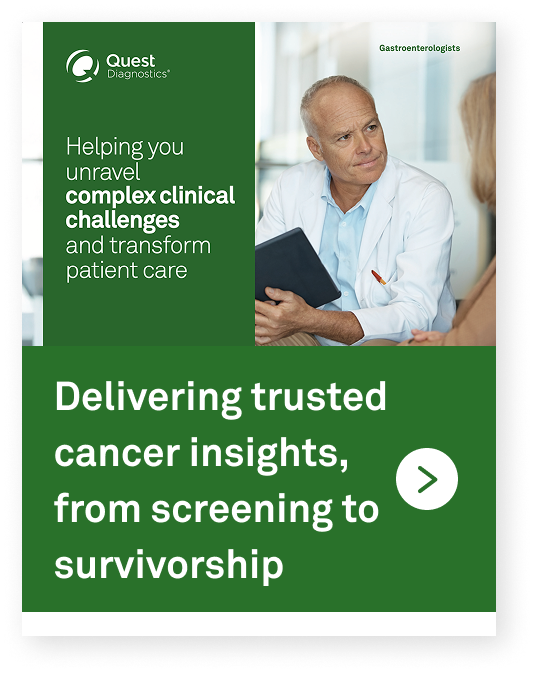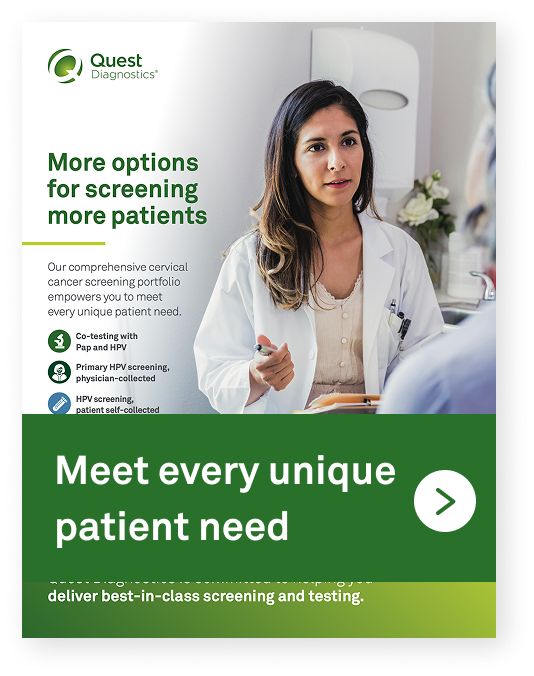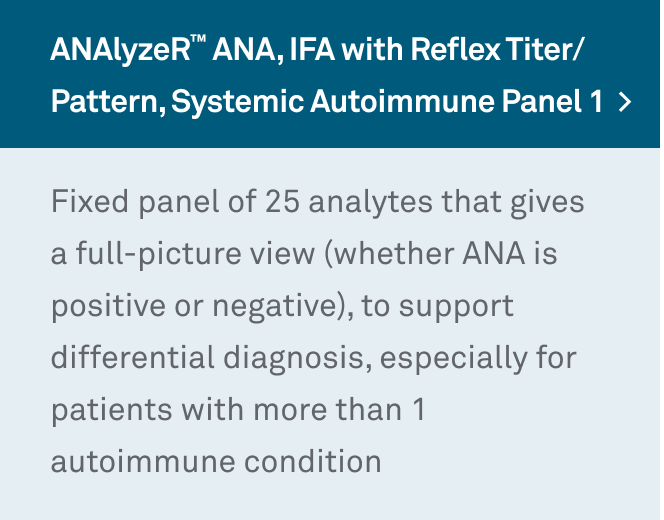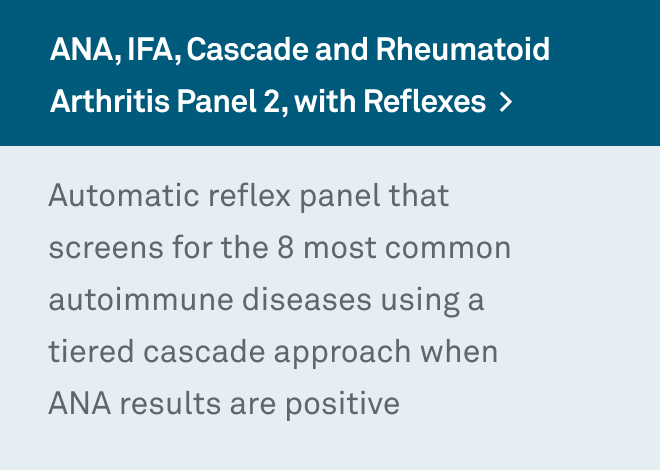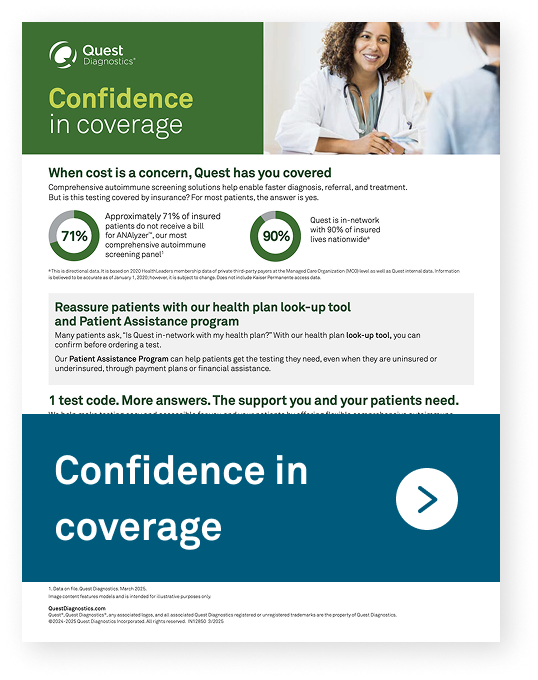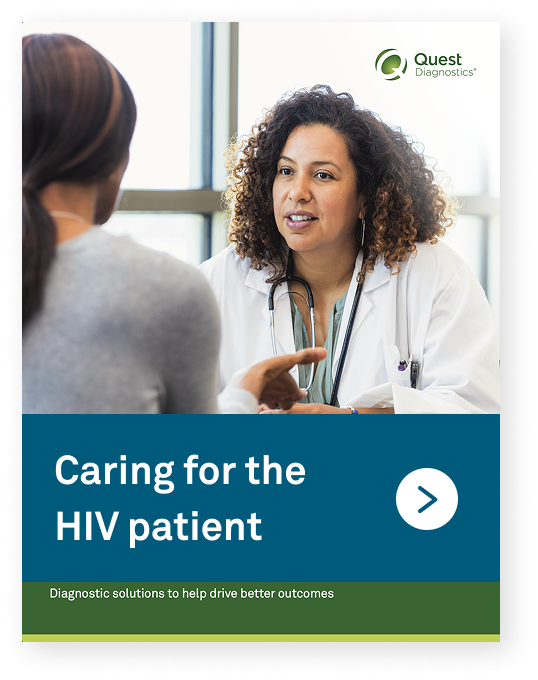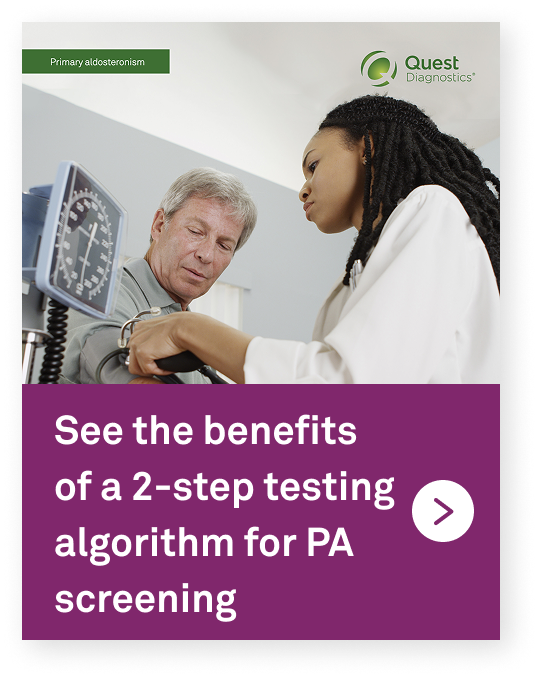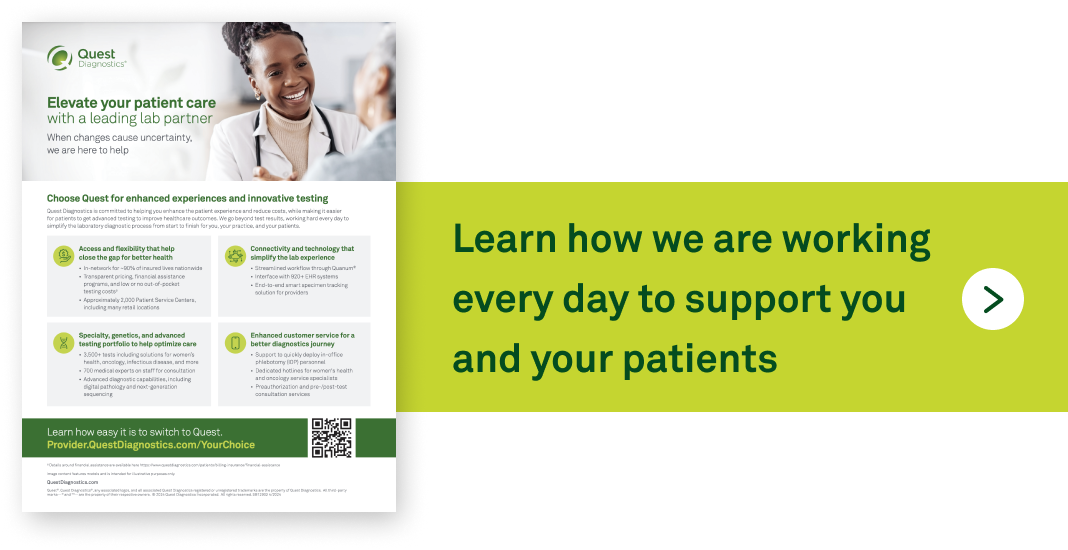April 2025

Discoveries, trends, and discussions in medical diagnostics
1) April is Stress Awareness Month
2) Improve colorectal cancer screening compliance
3) Expand options for cervical cancer screening with HPV self collection
4) Screen beyond ANA for faster autoimmune disease diagnoses
5) Provide answers to patients with HIV
6) Help identify more patients likely to have primary aldosteronism with PRA testing
7) Detect measles early to help minimize risk of transmission
|
|
April is Stress Awareness Month |
|
|
April is Stress Awareness Month |
|
|
April is Stress Awareness Month |
April is Stress Awareness Month |
Stress impacts both mind and body, and when it accumulates, it can lead to inflammation, weaken the immune system, and increase the risk of serious health conditions—including digestive issues, heart disease, weight gain, and stroke.1

|
43% of adults experience negative health effects from stress2 |
April is a time to spotlight the importance of recognizing underlying health issues and prioritizing holistic wellness.
Quest provides a comprehensive portfolio of tests to help uncover the root causes of patient symptoms. By working together, we can empower patients to take proactive steps toward long-term health—addressing potential concerns before they become chronic conditions.

|
Better outcomes |
Better outcomes |
Improve colorectal cancer screening compliance

Expand options for cervical cancer screening with HPV self-collection
- Transgender individuals10
- Women with religious barriers to such procedures11
- Women with a history of physical trauma12



|
Better experiences |
Better experiences |
Screen beyond ANA for faster autoimmune disease diagnoses
Provide answers to patients with HIV


- Everyone aged 13-64 should be tested at least once
- People at higher risk of acquiring (or exposure to) HIV should be tested at least annually
- Sexually active gay and bisexual men may benefit from more frequent testing (eg, every 3-6 months)

|
Removing traditional barriers to testing |

|
Removing traditional barriers to testing |
Removing traditional barriers to testing |
Identify more patients likely to have primary aldosteronism with PRA testing

|
|
Listen to our latest podcast for new insights and advances in the diagnosis of PA. |
Detect measles early to help minimize risk of transmission

Achieving the Quadruple Aim in your practice
About Diagnostics Dialogue
- American Psychological Association. Stress in America 2023. November 2023. Accessed March 6, 2025. https://www.apa.org/news/press/releases/stress/2023/collective-trauma-recovery
- The American Institute of Stress. Stress in adults. 2024. Accessed March 6, 2025. https://www.stress.org/who-gets-stressed/adults
- American Cancer Society. Key statistics for colorectal cancer. Updated January 16, 2025. Accessed February 21, 2025. https://www.cancer.org/cancer/types/colon-rectal-cancer/about/key-statistics.html
- NIH National Cancer Institute. Cancer trends progress report. March 2024. Accessed March 6, 2024. https://progressreport.cancer.gov/detection/colorectal_cancer
- US Preventive Services Task Force. Colorectal cancer: Screening. May 18, 2021. Accessed March 19, 2025. https://www.uspreventiveservicestaskforce.org/uspstf/recommendation/colorectal-cancer-screening
- American Cancer Society. Can colorectal polyps and cancer be found early? January 29, 2024. Accessed November 8, 2024. https://www.cancer.org/cancer/types/colon-rectal-cancer/detection-diagnosis-staging/detection.html
- National Cancer Institute. Cancer Currents: Overdue cervical cancer screening increasing. January 14, 2022. Accessed December 20, 2024. https://www.cancer.gov/news-events/cancer-currents-blog/2022/overdue-cervical-cancer-screening-increasing
- Star J, Bandi P, Siegel RL, et al. Cancer screening in the United States during the second year of the COVID-19 pandemic. J Clin Oncol. 2023;41(27): 4352-4359. doi:10.1200/JCO.22.02170
- American Cancer Society. Key statistics for cervical cancer. June 28, 2024. Accessed December 20, 2024. https://www.cancer.org/cancer/types/cervical-cancer/about/key-statistics.html
- Welsh HF, Andrus EC, Sandler CB, et al. Cervicovaginal and anal self-sampling for human papillomavirus testing in a transgender and gender diverse population assigned female at birth: comfort, difficulty, and willingness to use. LGBT Health. Published online April 4, 2024. doi:10.1089/lgbt.2023.0336
- Padela AI, Peek M, Johnson-Agbakwu CE, Hosseinian Z, Curlin F. Associations between religion-related factors and cervical cancer screening among Muslims in greater Chicago. J Low Genit Tract Dis. 2014;18(4):326-32. doi:10.1097/LGT.0000000000000026
- Madding RA, Currier JJ, Yanit K, et al. HPV self-collection for cervical cancer screening among survivors of sexual trauma: a qualitative study. BMC Women’s Health. 2024;24:509. doi:10.1186/s12905-024-03301-x
- Kaufman HW, Alagia DP, Chen Z, et al. Contributions of liquid-based (Papanicolaou) cytology and human papillomavirus testing in cotesting for detection of cervical cancer and precancer in the United States. Am J Clin Pathol. 2020;154(4):510-516. doi:10.1093/ajcp/aqaa074
- Pešut E, Đukić A, Lulić L, et al. Human papillomaviruses-associated cancers: An update of current knowledge. Viruses. 2021;13(11):2234. doi:10.3390/v13112234
- Autoimmune Association. Autoimmune Awareness Month. Accessed March 6, 2025. https://autoimmune.org/autoimmune-awareness-month/
- Chang R, Wang SI, Hung YM, Chen HY, Wei CCJ. Risk of autoimmune diseases in patients with COVID-19: A retrospective cohort study. eClinicalMedicine. 2023;56:101783. doi:10.1016/j.eclinm.2022.101783
- Autoimmune Association. Tips for getting a diagnosis of an autoimmune disease. Accessed May 2, 2024. https://autoimmune.org/resource-center/diagnosis-tips
- Data on file. Quest Diagnostics. 2025
- HIV.gov. US statistics. Updated February 21, 2025. Accessed March 6, 2025. https://www.hiv.gov/hiv-basics/overview/data-and-trends/statistics
- CDC. Fast facts: HIV in the US. April 22, 2024. Accessed October 9, 2024. https://www.cdc.gov/hiv/data-research/facts-stats/index.html
- Funder JW, Carey RM, Fardella C, et al. Case detection, diagnosis, and treatment of patients with primary aldosteronism: an Endocrine Society clinical practice guideline. J Clin Endocrinol Metab. 2008;93(9):3266-3281. doi:10.1210/jc.2008-0104
- Turcu AF, Yang J, Vaidya A. Primary aldosteronism — a multidimensional syndrome. Nat Rev Endocrinol. 2022;18(11): 665-682. doi:10.1038/s41574-022-00730-2
- CDC. Clinical overview of measles. July 15, 2025. Accessed March 6, 2025. https://www.cdc.gov/measles/hcp/clinical-overview/index.html

